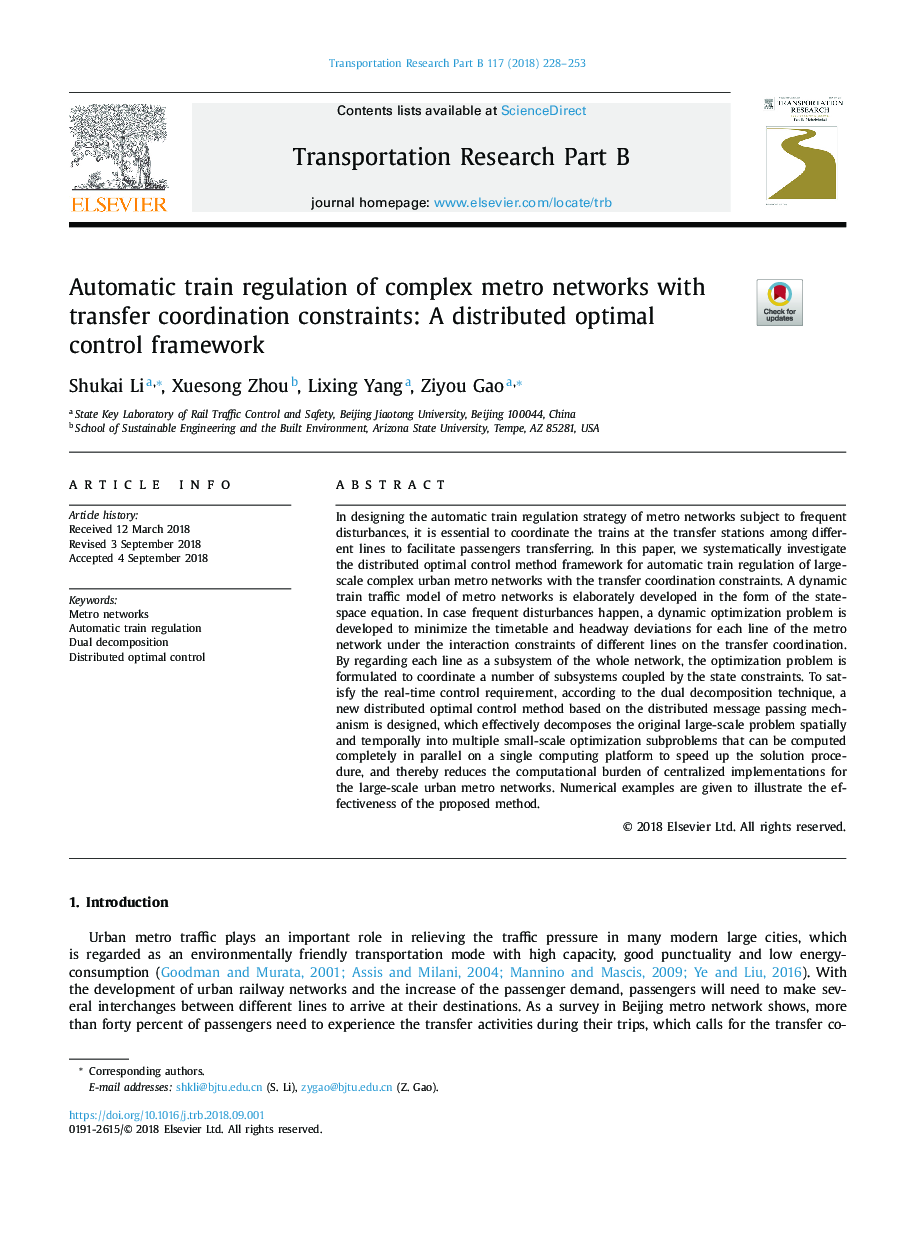| Article ID | Journal | Published Year | Pages | File Type |
|---|---|---|---|---|
| 10140706 | Transportation Research Part B: Methodological | 2018 | 26 Pages |
Abstract
In designing the automatic train regulation strategy of metro networks subject to frequent disturbances, it is essential to coordinate the trains at the transfer stations among different lines to facilitate passengers transferring. In this paper, we systematically investigate the distributed optimal control method framework for automatic train regulation of large-scale complex urban metro networks with the transfer coordination constraints. A dynamic train traffic model of metro networks is elaborately developed in the form of the state-space equation. In case frequent disturbances happen, a dynamic optimization problem is developed to minimize the timetable and headway deviations for each line of the metro network under the interaction constraints of different lines on the transfer coordination. By regarding each line as a subsystem of the whole network, the optimization problem is formulated to coordinate a number of subsystems coupled by the state constraints. To satisfy the real-time control requirement, according to the dual decomposition technique, a new distributed optimal control method based on the distributed message passing mechanism is designed, which effectively decomposes the original large-scale problem spatially and temporally into multiple small-scale optimization subproblems that can be computed completely in parallel on a single computing platform to speed up the solution procedure, and thereby reduces the computational burden of centralized implementations for the large-scale urban metro networks. Numerical examples are given to illustrate the effectiveness of the proposed method.
Related Topics
Social Sciences and Humanities
Decision Sciences
Management Science and Operations Research
Authors
Shukai Li, Xuesong Zhou, Lixing Yang, Ziyou Gao,
